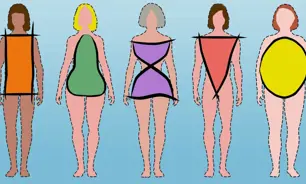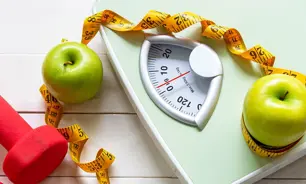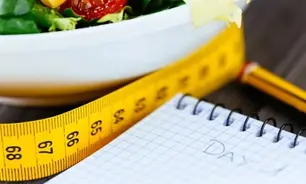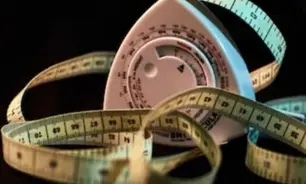Whether you are an athlete, bodybuilder, or someone interested in staying fit and healthy, knowing the different weight units is essential for tracking your progress and accurately analyzing your data via fitness measuring devices.
Some countries, such as Saudi Arabia, use kilograms (kg) and grams (g), known as the metric system, while others, such as the United States and Britain, rely on pounds (lb) and ounces (oz), known as the imperial system, which can sometimes make the numbers confusing.
The British imperial system, also known as the British imperial, is a historic system of weights and measures used in the UK and its former territories. In this system, one pound is divided into 16 ounces.
The history of these measurement systems shows how units like the pound and ounce evolved, and how the international system and the international system of units (SI) were developed to standardize measurements globally.
SIGN UP FOR YOUR FREE DAY PASS TODAY!
Weight loss is one of the most common goals in health and fitness, and it is among the most prevalent life goals among young people in the Kingdom, as most of us have tried to achieve it at some point in our lives. Finding a gym near you is the first step in your weight loss journey.
Although the perception of achieving the ideal body is often driven by unrealistic images on television and social media, there is actually a scientific concept known as.
How to use the GymNation weight converter
Using our weight converter tool is quick and easy and requires no manual calculations. You can convert weight between kilograms (kg), grams (g), pounds (lb), and ounces (oz) in a matter of seconds by following these steps: The tool allows you to convert kilograms to other mass units, including pounds to kilograms and vice versa.
Select the unit system, either the metric system (kilograms and grams) or the imperial system (pounds and ounces).
Enter the weight value in the box provided, whether in kilograms (kg), grams (g), pounds (lb), or ounces (oz). Perform the conversion. Once you enter the number, the converted values will automatically appear in the other units without having to press any buttons.
Fitness tools that rely mainly on weight
These indicators are mainly based on weight, so it is important to know your weight accurately, as any errors in calculation will affect the accuracy of the results and health recommendations. Therefore, a weight conversion calculator is an important tool to help you easily convert between pounds and kilograms, ensuring that you enter accurate data when using these indicators, regardless of the units of measurement you rely on. Selecting the correct unit of mass, such as pound or kilogram, is essential for accurate health assessments and consistent results.
Ideal Body Weight Index (IBW)
The Ideal Body Weight Index (IBW) was originally designed from a medical perspective, where it is used to estimate drug doses and other medical applications. The formulas used to determine ideal weight are based on purely scientific criteria, completely unrelated to concepts related to appearance or personal perceptions of ideal weight.
Currently, IBW is commonly used in two main areas:
-
Calculating medication doses, as the doses of many medications are based on ideal weight rather than total body weight.
-
Classifying weights in many sports, where it is used to determine the appropriate categories for athletes.
However, the ideal weight index is not a perfect measure, as its accuracy decreases the further a person is from the normal body shape. This is especially true for athletes with large muscle structures, such as bodybuilders and rugby players.
Just like other body fat measurement indicators, IBW does not differentiate between lean muscle mass and body fat. Therefore, it is quite possible for someone with low body fat and high muscle mass – such as athletes – to appear overweight when calculating IBW.
Body Mass Index (BMI)
Body Mass Index (BMI) is a measure used to assess weight in relation to height, and is widely used to classify individuals into categories:
-
Underweight
-
Normal weight
-
Overweight
-
Obese
BMI is calculated by dividing a person's weight in kilograms by the square of their height in meters (weight/height²). BMI is an easy and quick tool for assessing weight, but—just like IBW—it does not take into account body composition, such as muscle-to-fat ratio, which may make it inaccurate for athletes and people with a muscular build.
What are the common units of weight?
Weight measurement units vary between different systems. The metric system uses kilograms (kg) and grams (g), while the imperial system uses pounds (lb) and ounces (oz). The kilogram is used as the basic unit of weight in most countries around the world, including Saudi Arabia, and is equivalent to 1,000 grams. 'Kilo' is a popular abbreviation for kilogram.
In contrast, the imperial system used primarily in the United States and the United Kingdom relies on units such as pounds (lb) and ounces (oz), and pounds are widely used to measure the weight of individuals in these countries.
The lb is a unit of mass, and one pound is defined as exactly 0.45359237 kilograms. The definitions of these units are standardized: one pound is equal to 16 ounces and exactly 0.45359237 kilograms. The pound is a popular unit of weight in many countries. These definitions are important for ensuring accurate and consistent measurements.
Due to the differences between these systems, converting weight between kilograms and pounds is essential, especially when dealing with international nutrition and fitness plans, or when using sports equipment that comes with different units of measurement
Methods for converting different weight units
weight converter lbs to kg
Converting weight between pounds and kilograms is one of the most common conversions, especially when calculating ideal weight or determining appropriate weights for exercises. This is done using the following relationships:
-
1 pound (international avoirdupois pound) = exactly 0.45359237 kilograms (0.45359237 kg)
-
1 lb is defined as exactly 0.45359237 kilograms
-
1 kg = approximately 2.20462 pounds
Practical example: If you weigh 180 pounds, you can convert it to kilograms using the following equation: 180 × 0.45359237 = approximately 81.65 kilograms. For instance, to convert 8 lbs to kilograms: 8 × 0.45359237 = 3.62873896 kg.
The pound used in these conversions is the international avoirdupois pound, which is the standard unit of mass in the US and UK. The stone is another unit of mass used in the UK, where 1 stone equals 14 pounds, and stones are commonly used for body weight. To convert kilograms to pounds or stones, you multiply the number of kilograms by the appropriate conversion factor.
The kilogram was originally defined based on the mass of a liter of water. These conversion factors are updated to reflect the most current international standards. Over time, the historical development and standardization of these units have ensured accuracy and consistency in measurements.
Converting from kilograms to grams and vice versa
This relationship is mainly used in measuring food ingredients and nutritional supplements:
-
1 kilogram = 1000 grams
-
1 gram = 0.001 kilogram
Example: If you need to consume 500 grams of protein per week, this equates to: 500 ÷ 1000 = 0.5 kilograms
Weight measurement conversion table (grams)
| Unit | symbol | Value per gram |
|---|---|---|
| milligram | mg | 0.001 gram |
| Centigram | cg | 0.01 gram |
| Decigram | dg | 0.1 gram |
| gram | g | 1 gram |
| Decagram | dag | 10 gram |
| hectogram | hg | 100 gram |
| kilogram | kg | 1000 gram |
| megagram | Mg | 1,000,000 gram |




























































































